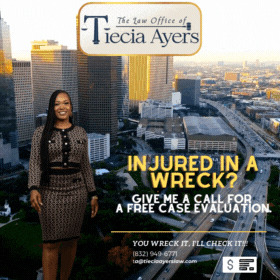Best Workers Compensation Lawyers in Texas
Share your needs with us, get contacted by law firms.
Free. Takes 2 min.
Or refine your search by selecting a city:
List of the best lawyers in Texas, United States
About Workers Compensation Law in Texas, United States
Workers compensation is a state-regulated insurance program that provides medical and income benefits to employees who suffer work-related injuries or illnesses. In Texas, workers compensation is designed to help employees recover from workplace injuries without having to file lawsuits against their employers. This system offers benefits for medical expenses, a portion of lost wages, and compensation for permanent impairments or disabilities. Unlike most other states, Texas does not require most private employers to have workers compensation insurance, making it unique in how claims and coverage are handled.
Why You May Need a Lawyer
Navigating workers compensation claims in Texas can be complex, especially since not all employers are required to carry insurance. You may benefit from legal assistance in situations such as:
- Your claim has been denied by your employer or their insurance company.
- Your benefits or medical care are delayed, reduced, or terminated prematurely.
- Your injury results in lasting disability or requires significant long-term care.
- You face retaliation, demotion, or termination after filing a claim.
- You are unsure if your employer carries workers compensation coverage or you must sue for damages.
- You receive a settlement offer and want to know if it is fair and adequate.
- You are having trouble with paperwork or the appeals process.
Local Laws Overview
Texas workers compensation law is governed by the Texas Labor Code and administered by the Texas Department of Insurance, Division of Workers Compensation (TDI-DWC). Key aspects include:
- Optional Coverage: Private employers in Texas can choose whether or not to carry workers compensation insurance, though exceptions apply to certain industries and public employers.
- No-Fault System: If covered, workers generally receive benefits regardless of who was at fault for the injury, except in cases of intoxication or intentional self-harm.
- Notice and Filing Deadlines: Employees must report injuries to their employer within 30 days and file a claim with the Division of Workers Compensation within one year of the injury.
- Non-Subscribers: Employers who opt out of workers compensation can be sued for negligence and may lose certain legal defenses in court.
- Types of Benefits: Benefits may include medical care, income benefits (temporary, impairment, supplemental, and lifetime), and death benefits for surviving families.
- Dispute Resolution: Disputes over benefits are resolved through a formal process involving benefit review conferences, contested case hearings, and potentially appeals.
Frequently Asked Questions
What is workers compensation?
Workers compensation is a state system that provides benefits to employees injured or sickened at work. It typically covers medical bills, partial wage replacement, and rehabilitation costs.
Is my employer required to have workers compensation insurance in Texas?
No, Texas does not require most private employers to carry workers compensation insurance. Employers who opt out are called non-subscribers and may be exposed to lawsuits for workplace injuries.
What should I do if I am injured at work?
Report your injury to your employer as soon as possible-no later than 30 days after the injury. Then, seek appropriate medical attention and file a claim with the Texas Division of Workers Compensation.
What benefits am I entitled to under workers compensation?
If covered, you may receive all necessary medical care, income benefits for lost wages, compensation for permanent disabilities, and benefits to dependents if a worker dies on the job.
Can I sue my employer if I get hurt at work?
If your employer has workers compensation insurance, you generally cannot sue for most work injuries. If your employer is a non-subscriber, you may have the right to bring a personal injury claim.
What if my claim is denied?
You can contest a denied claim through the Texas Division of Workers Compensation’s dispute resolution process, which may include mediation, hearings, and appeals.
Does workers compensation cover pre-existing conditions?
Workers compensation may cover the aggravation of a pre-existing condition if the worsening is directly caused by a work-related event or exposure.
How long do I have to file a workers compensation claim?
You must report your injury to your employer within 30 days and generally have one year from the date of injury to formally file a claim with the Division of Workers Compensation.
Can I be fired for filing a workers compensation claim?
It is illegal for an employer to retaliate against an employee for filing a workers compensation claim. If you believe you have been retaliated against, you may have additional legal remedies.
Do I need a lawyer to file a workers compensation claim?
You are not required to have a lawyer, but legal assistance can be helpful, especially if your case is denied, benefits are inadequate, or your employer is a non-subscriber.
Additional Resources
If you need more information or help with a workers compensation issue in Texas, you might consider these resources:
- Texas Department of Insurance, Division of Workers Compensation (TDI-DWC)
- Office of Injured Employee Counsel (OIEC)
- Texas State Bar Association - Lawyer Referral Services
- Legal Aid Organizations (such as Texas RioGrande Legal Aid, Lone Star Legal Aid)
- Texas Workforce Commission for employment rights and related workplace issues
- Local county law libraries or worker advocacy groups
Next Steps
If you have been injured at work or are experiencing difficulties with a workers compensation claim in Texas, take these steps:
- Report your injury to your employer promptly, document all details, and seek medical treatment if needed.
- Determine if your employer has workers compensation coverage. You can ask your employer or check with the Texas Department of Insurance, Division of Workers Compensation.
- File a claim within required deadlines to preserve your rights to benefits.
- Keep detailed records of your injury, treatment, and any communication about your claim.
- Consider consulting a lawyer if your claim is denied, benefits are delayed or reduced, or if your employer does not have coverage.
- Use available resources for more guidance or support as you pursue your rights under Texas law.
A qualified workers compensation attorney can review your situation, explain your rights, and help navigate the often-complicated claims and appeals process, ensuring you get the benefits you are entitled to by law.
Lawzana helps you find the best lawyers and law firms in Texas through a curated and pre-screened list of qualified legal professionals. Our platform offers rankings and detailed profiles of attorneys and law firms, allowing you to compare based on practice areas, including Workers Compensation, experience, and client feedback.
Each profile includes a description of the firm's areas of practice, client reviews, team members and partners, year of establishment, spoken languages, office locations, contact information, social media presence, and any published articles or resources. Most firms on our platform speak English and are experienced in both local and international legal matters.
Get a quote from top-rated law firms in Texas, United States — quickly, securely, and without unnecessary hassle.
Disclaimer:
The information provided on this page is for general informational purposes only and does not constitute legal advice. While we strive to ensure the accuracy and relevance of the content, legal information may change over time, and interpretations of the law can vary. You should always consult with a qualified legal professional for advice specific to your situation.
We disclaim all liability for actions taken or not taken based on the content of this page. If you believe any information is incorrect or outdated, please contact us, and we will review and update it where appropriate.
Browse workers compensation law firms by city in Texas
Refine your search by selecting a city.















